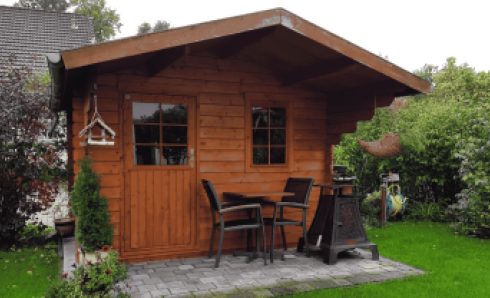For thousands of homeowners across Ireland, underinsurance is a serious issue that often goes unnoticed until it’s too late.
Underinsurance happens when a home's insured value or its contents doesn’t match its actual worth. If you’re underinsured, any damage or loss could lead to a shortfall, leaving you to make up the difference out of your own pocket.
With construction and home content costs on the rise due to inflation, it’s vital to stay on top of your insurance coverage to avoid gaps.
What Exactly is Underinsurance?
Underinsurance means that your home or belongings are insured for less than what they’re currently worth.
For example, if the cost of rebuilding your home has increased due to rising construction prices but your coverage hasn’t been updated, you might be underinsured.
The same applies to your home’s contents—from electronics to furniture. If they’re underinsured, you might not be fully covered if the worst happens.
Why Underinsurance is Becoming More Common
In Ireland, underinsurance is on the rise for a few reasons. Inflation has driven up the costs of building materials, and many homeowners still rely on older valuations for their insurance.
Without regular updates, these policies often don’t reflect the true costs of rebuilding or replacing contents.
What’s the Risk of Being Underinsured?
If you’re underinsured, there are some serious financial risks:
- Reduced Payouts on Claims: Insurance payouts are proportional to your level of coverage. If your home is only 50% insured, you’ll only receive 50% of any claim amount. This could leave you struggling to cover the rest.
- Out-of-Pocket Expenses: Any gap between your coverage and the actual cost of repairs or replacement falls to you, which can be a major financial burden.
- Inadequate Coverage for Total Loss: In the case of a total loss – say, from a fire – the payout might not be enough to rebuild your home entirely, leaving you to cover the remaining costs.
- Financial Strain and Added Stress: The financial impact of covering shortfalls can be incredibly stressful, especially during a difficult time when you’re already dealing with loss or damage.
Real-World Examples of Underinsurance
To help illustrate how underinsurance works, here are a few examples based on real situations:
Case 1: Partial Damage
Imagine your home is insured for €150,000, but the actual cost to rebuild it is €300,000, meaning it’s only 50% insured. If water damage occurs, causing €50,000 in repairs, you’d only receive half the claim amount – €25,000 – leaving you to cover the rest yourself.
Case 2: Total Loss
A homeowner insures their property for €150,000, but after a fire, the rebuild cost is assessed at €200,000. With 75% insurance coverage, the homeowner would receive only €150,000, meaning they need to find the remaining €50,000 themselves.
Case 3: Contents Underinsured
Suppose you insure your home contents for €15,000, but they’re actually worth €30,000. If a burst pipe causes €20,000 in damages, you’d only receive half – €10,000 – from the insurance, leaving you to pay the other €10,000 out-of-pocket.
If you’re unsure about your own coverage, contact us and we’ll gladly go through it with you.
How to Check If You’re Underinsured
Keeping your coverage up-to-date is key to avoiding underinsurance. Here’s what you can do:
- Annual Review: Take some time each year to review your policy and adjust for any changes in rebuilding costs or contents value.
- Professional Valuations: Use tools like the Society of Chartered Surveyors Ireland (SCSI) rebuild calculator or consult local professionals to accurately assess your home’s rebuild value.
- Home Inventory: Go through each room in your home and list all valuable items, like furniture, electronics, and personal belongings, to ensure your contents insurance is sufficient.
Steps to Take if You Suspect You’re Underinsured
If you think your home or its contents might be underinsured, it’s best to act quickly:
- Contact 123.ie: Reach out to us directly, and we’ll walk you through any adjustments needed to ensure your coverage reflects the current value of your home and its contents.
- Professional Valuations: You can also use the SCSI resources to calculate accurate values for your buildings and contents.
- Update Your Policy in My123: Once you have your new figures, log into your My123 portal and update your rebuild cost and contents cover. You’ll receive confirmation of any changes within a few days.
Getting Your Rebuild Costs Right
When calculating rebuild costs, don’t just look at the market value of your property – it’s the actual cost to rebuild that matters. Include everything that’s fixed to your home, such as:
- Kitchens
- Bathroom fixtures
- Built-in wardrobes
- Conservatories
- Garages
Properly Valuing Your Home Contents
To get the right amount of contents insurance, make a detailed inventory of each room:
- Room-by-Room Inventory: List all removable items in each room – from electronics to kitchenware.
- Replacement Cost: Consider the current replacement cost for each item, not just what you paid for it originally.
- Total Value: Add everything up to get a clear picture of your home contents' total value.
The Issue of Over-Insurance
While underinsurance can leave you under-protected, overinsurance isn’t ideal either. Overinsurance means you’re paying higher premiums for coverage that exceeds the actual value of your home or contents.
Aim to strike a balance – adequate coverage without unnecessary costs.
Should You Wait Until Renewal to Update Your Policy?
No need to wait! If you spot a gap in your coverage, it’s wise to make updates right away. Your renewal date might be months off, and you don’t want to be caught short if something happens.
Get the Right Insurance with 123.ie
Underinsurance is a real risk that Irish homeowners shouldn’t ignore. With construction costs rising and the price of home contents going up, it’s essential to keep your coverage in line with the current value of your home and belongings.
Here at 123.ie, we’re all about making insurance simple and helping you feel confident in your coverage. We’re always here to help you understand your policy and make sure you’re protected against whatever comes your way.





